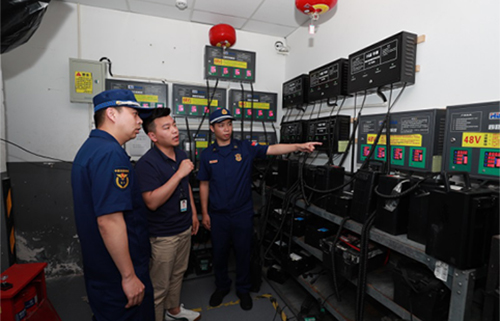Welcome to the relevant industries to call us, we will work together with you in good faith, common development! We sincerely welcome new and old friends to call us for guidance!
Our hand in hand, will be for your product to bring the deduction.

Solid-state batteries have once again become a hot topic of concern in the industry.
Recently, it is reported that at the upcoming Tokyo Olympic Games in Japan, Toyota Motor as a sponsor will showcase its new solid-state battery technology and vehicles equipped with solid-state batteries. In fact, according to Toyota's plan, it plans to publicly use solid-state batteries in the trial production of vehicles in 2021.
On July 12, the solid-state battery plate went up, up by 3; By the close, the gain was 4.2; Sector stocks Xiaokang Shares, Jiangsu Guotai, Ganfeng Lithium rose by the daily limit. In fact, at present, including car companies, battery manufacturers are investing in research and development in the field of solid-state batteries, intending to seize high ground; The industry also generally believes that solid-state batteries are promising next-generation battery technology for mass production, and they are one of the technical routes for future power batteries.
Is the solid state battery vent coming?
Accelerate the layout, solid-state batteries become giants will fight for high ground
At present, lithium iron phosphate batteries and ternary lithium batteries are liquid electrolyte lithium batteries. Liquid electrolyte lithium battery is made of positive, diaphragm, negative and electrolyte. The solid-state battery uses a solid-state electrolyte to replace the diaphragm and electrolyte, and the solid-state battery can be divided into polymers, oxides and sulfides according to the type of electrolyte material.
Solid-state batteries are becoming a must for giants.
Terashima Shigeki, executive director of Toyota Motor, said that at the time of the Tokyo Olympic Games, Toyota will launch a new energy model, which will be equipped with Toyota's new solid-state battery, and this new model is expected to achieve mass production in 2025. In fact, not only Toyota Motor, BMW Group, Volkswagen Group and other car companies, Ningde Times, LG Chemical and Panasonic and other power battery companies are also laying out solid-state batteries.
Volkswagen Group said at PowerDay in March that it will focus on developing solid-state battery technology in the future and expects to put it into use by 2025. The Volkswagen Group believes that the all-solid-state battery is the "final chapter" in the development of lithium-ion batteries, and the Volkswagen Group is currently cooperating with Silicon Valley start-up Quantum Scape to develop all-solid-state batteries. In April, the BMW Group also released plans to purchase test batteries in 2022, launch prototypes with solid-state batteries by 2025, and begin road testing of vehicles equipped with all-solid-state batteries by 2025, and achieve mass production by 2030.
In addition, Nissan also plans to push all-solid-state batteries to practical use in the second half of electrification; Hyundai has said it is developing solid-state batteries and plans to put the first cars using the technology into mass production in 2030. Gm invested in startup Solid Energy Systems to develop solid-state batteries; Ford has also invested in solid-state battery startups; Daimler and Canada's Hydro-Quebec are jointly developing solid-state battery technology, which will be applied to electric vehicles when it reaches mass production.
LG New Energy said it is developing all-solid-state batteries and is expected to achieve mass production in 2026.
Back to the domestic market, BYD said in 2016 that solid-state batteries are the tone for the future development direction, trying to use small-scale, and will launch solid-state batteries in the next 10 years, almost five years; In 2018, it promoted the commercialization of solid-state battery projects, and took solid-state batteries as the next step in research. In January this year, NIO released a high-profile 150kWh solid-state battery pack with an energy density of 360Wh/kg and a NIO ET7 sedan with a battery pack endurance of more than 1000km on NIO Day, and said it planned to be delivered in the fourth quarter of 2022.
Huineng Technology plans to provide several state-owned O&M plants to launch a batch of solid-state battery mass production vehicles through a 2GWh demonstration line next year, and strive to reach 50GWh in 2026; Xingying Technology has also invested 5.5 billion yuan to establish a solid-state power lithium battery project, with a planned annual capacity of 10GWh.
Many companies in the A-share market are also laying out solid-state batteries, such as Ganfeng Lithium's 200 million watt-hour solid-state battery pilot line has been successfully put into production, high energy density, small size and other characteristics of solid-state batteries. Ningde Times has said that the Ningde Times laboratory will focus on the research and development of next-generation batteries such as metal lithium batteries, all-solid-state batteries and sodium-ion batteries, and continue to conduct cutting-edge research and product development investment in solid-state batteries and other technologies.
The main advantages of solid-state batteries over liquid lithium batteries are safety and energy density. Once the liquid lithium battery is squeezed and impacted, it will cause the diaphragm to break, resulting in positive and negative short circuit, and at the same time, the lithium battery generates a lot of heat inside, coupled with the flammable organic solvent in the liquid electrolyte, the result is the battery fire or even explosion.
In contrast, the positive and negative of solid state batteries are not prone to short circuits, and the solid electrolyte is non-combustible and non-volatile, and it is resistant to high temperature.
From the energy density point of view, theoretically speaking, the energy density of liquid electrolyte lithium battery is 350Wh/kg, and coupled with battery management system and other components, basically the whole system 300Wh/kg. Solid-state batteries can increase the energy density to more than 350Wh/kg, improving the vehicle's driving range.
However, solid-state batteries have not yet been mass-produced. According to the details disclosed by NIO, the solid-state battery released by NIO adopts three new processes, namely, the original cured solid-liquid electrolyte, inorganic pre-lithium silicon carbon negative, and nano coated nickel positive. However, it is generally believed in the industry that the semi-solid state battery released by NIO Automobile uses nickel positive + pre-lithium silicon carbon negative + solid-liquid electrolyte (solid + liquid) + diaphragm, which is a transitional technology from liquid to solid state batteries.
Zhang Xiang, an auto industry analyst, said that at present, no car companies in the world can achieve mass production, and there are still some key problems to be overcome in solid-state batteries.
First, the ionic conductivity of solid electrolyte of solid state battery is low; Second, the interface impedance between solid electrolyte and electricity is large, and the transmission resistance of lithium ion is large, which affects the normal release of battery capacity. The third is that the solid-state battery process is more complex, and it has not yet reached the mass production level, some processes are still at the laboratory level, and some processes are in the debugging stage; Fourth, the material system is immature and the cost is high.
Increasing support is considered to be a future upgrade trend, but mass production will take time
At present, the industry generally believes that solid-state batteries are one of the future battery technology routes.
Zhang Xiang, an auto industry analyst, believes that solid-state batteries are a technological route to replace ternary lithium batteries in the future. Not only that, countries also support solid-state batteries from the policy; For example, Germany plans to invest 1 billion yuan to support Germany's solid-state battery research, and Japan said that it will take all-solid-state batteries and lithium-sulfur batteries as the main development goal, and enter the all-solid-state battery stage after 2025.
In the "New energy automobile Industry Development Plan (2021-2035)" put forward to strengthen the solid state battery research and development and industrialization process requirements, the first time the solid state battery rose to the national level, put forward by 2030, China's liquid electrolyte will evolve into a solid electrolyte goal.
Forward-looking industry Research Institute believes that as global enterprises increase the research and development layout of solid-state batteries, various policies to promote the industrialization of solid-state batteries is expected to accelerate, is expected to 2021-2030 global solid-state battery shipments rapid growth, to 2030 or will exceed 250GWh. Saidi think tank also believes that in view of the current development trend, the commercialization process of solid-state batteries will be earlier than expected.
However, there are also industry insiders who hold the opposite view, Zeng Yuqun, chairman of Ningde Times, has said that Ningde Times can currently make solid-state battery samples, but the relevant indicators are still long distance from commercialization. Western securities electric intelligent vehicle analyst Wang Guanyong also told the Beijing News reporter that solid-state batteries at this stage there are still technical and cost issues to be solved, solid-state batteries are mainly done by battery manufacturers, but they do not have mass production capacity at this stage, and solid-state batteries can not achieve mass production commercialization in the short term, at least five to ten years.
However, there is also a general consensus in the industry that solid-state batteries are the next generation of battery technology that is promising to achieve mass production, which can solve the short life of liquid electrolyte lithium batteries, and solid-state batteries are considered to be the future upgrade trend of power batteries; With the acceleration of the layout of global car companies and power battery manufacturers, it may also set off a new round of competition in the power battery circuit.
|
Last: CCTV reports the "power change" market, the industry needs to develop power change standards!
Next: What is a solid-state battery? Why become a business giant must fight for heights! |
Return |
Recommended news

On June 18, 2021, LG New Energy Asia Marketing General Manager revealed at the 2021 China Automotive Forum that LG New Energy is de…

Two-wheeled electric vehicles are a means of transportation in many Peoples Daily lives, but accidents are also common in the proce…